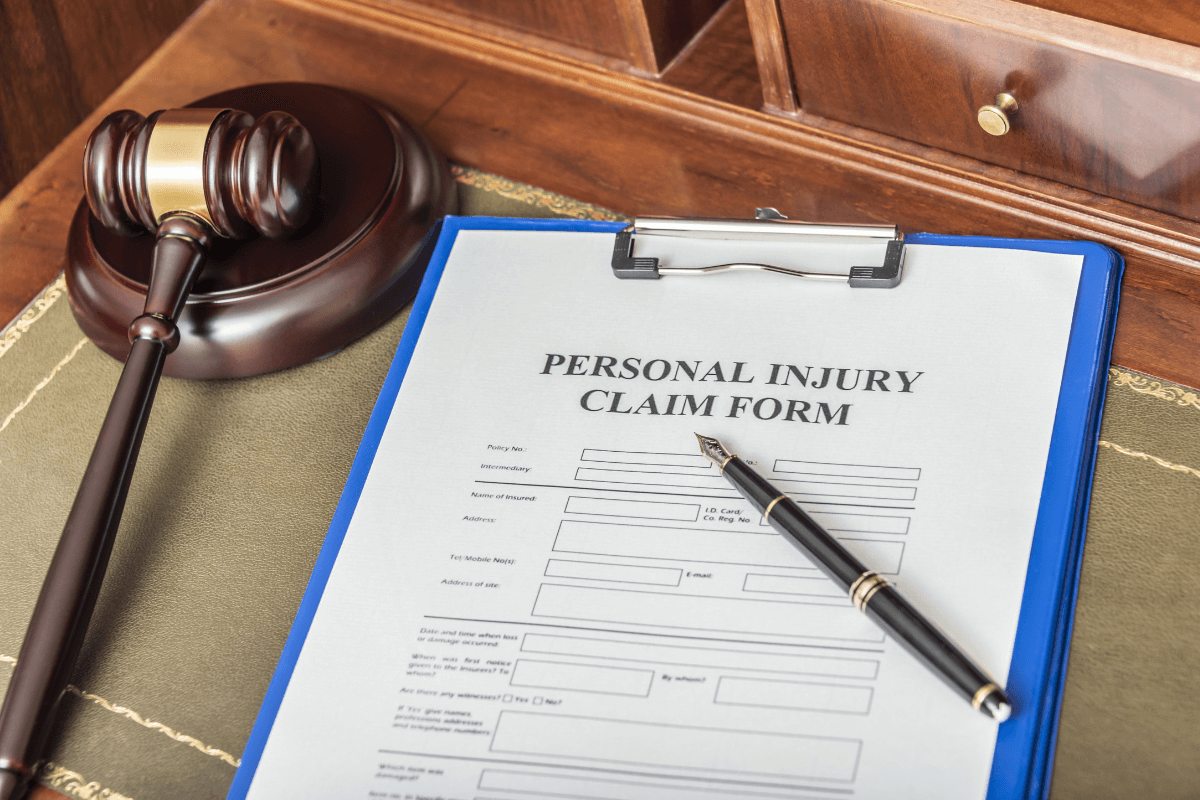
The clock starts ticking the moment you suffer a personal injury. In the days and weeks following a personal injury, you need nothing more than to heal and recover. However, you realize that legal action will be necessary as medical bills continually appear and the time off from work takes its toll.
A statute of limitations defines how long you have to seek compensation for a personal injury in Texas. This timeframe varies from state to state. Contacting a Texas personal injury lawyer as soon as possible assures that someone is looking out for your financial recovery while you heal physically.
Texas Statute of Limitations for Personal Injury
Personal injury occurs when you suffer damages due to another’s negligence. These damages may occur in a car accident on your commute to work or in the grocery store should you slip and fall on a wet floor while shopping. Being struck by a vehicle on a walk or bitten by a neighborhood dog are examples of personal injury. Texas personal injury laws also cover work-related accidents impacting Texas workers performing demanding jobs, such as construction and oilfield work. These examples are only a few circumstances a personal injury claim can address.
In most personal injury claims, an injured party has two years (Sec. 16.003) from the time negligence results in injury to file a civil lawsuit against the responsible party. Failing to take legal action during this two-year timeframe may result in the inability to recover damage costs associated with your injuries.
The Purpose of the Statute of Limitations
Proof must exist that a negligent action occurred; otherwise, there is no case. As time passes, evidence becomes compromised, and it becomes more challenging to locate or may be destroyed. Memories of events are forgotten and become unclear over time, making eyewitnesses less reliable. The statute of limitations helps to preserve the evidence of a case.
A time limit for taking civil action also removes the cloud of potential liability from a defendant at a determined point in time. Without limitations, a lawsuit could indefinitely threaten the potentially negligent party. A time limit provides relief to possible defendants in a case.
State courts continually experience full dockets, making it challenging to address recent lawsuits. Without a statute of limitations, the Texas legal system would experience significant burdens. The statute of limitations also encourages parties to settle before going to court. The timeframe allows the pursuit of legal action while providing an avenue to settle without court litigation.
Exceptions to the Statute of Limitations in Texas Personal Injury Claims
Exceptional circumstances may apply to many laws that extend the deadline for taking legal action in a Texas personal injury claim. The laws surrounding these circumstances are clearly defined and apply limits even in these exceptional situations. While some exceptions to the law extend the time limit, others shorten the timeframe significantly.
Claims Impacting Individuals Under Legal Disability
Texas personal injury laws may allow the statute of limitations to accommodate individuals with a disability. Texas laws declare an individual is under legal disability (Sec. 16.001) when:
- A person is under the age of 18, regardless of marital status
- An individual is of unsound mind
When a personal injury occurs to someone with a legal disability in Texas, the clock that generally starts, beginning the legal time to take action, is paused until a disability ends.
In these circumstances, the clock starts ticking on the amount of time left to pursue a claim when the injured party turns 18 or becomes mentally capable of pursuing a claim.
Wrongful Death

Inherently Undiscoverable Injuries
Some injuries may be inherently undiscoverable within the two-year limit. In these instances, a court may rule that the statute of limitations is paused until the injuries are fully known.
Maritime Claims
Many Texans are employed in the maritime industry. Federal laws apply to all maritime claims. While several rules apply on the state and federal level, most maritime claims must be filed within three years (§30106) of an injury. However, these laws are complex, and time limits may vary according to the circumstances in each case, requiring the assistance of a Houston maritime lawyer.
A Defendant Leaves the State
Should the party whose negligence resulted in your injuries leave the state after the injury occurred but before a lawsuit is filed, the clock on the statute of limitations is paused until the defendant returns.
Claims Against Your Personal Auto Insurance
Texas drivers may choose supplemental auto coverage in addition to the required liability insurance. Drivers with additional coverage, including personal injury protection and uninsured / underinsured motorist coverage, may file a claim against their insurance company within two to four years, depending on the type of insurance, for damages in an auto accident.
Claims Involving the State of Texas
Texas has significantly reduced the time a party has to file an injury claim against the state. A personal injury claim must be filed within six months (Sec. 101.101) of an injury if it involves negligence on the part of the state.
Waiting to Pursue a Personal Injury Claim

Substantial proof of negligence is more likely to encourage a settlement. Going to court to fight sound evidence is costly. A Houston personal injury attorney can begin building your case immediately to negotiate a fair settlement for your injuries.
Contacting a personal injury lawyer in Houston soon after you are hurt also removes the legal burden from you, allowing someone else to step in to shoulder the load. Suffering a personal injury starts the clock and reduces your time to act with each second. Individuals have the legal right to pursue damages for injuries in a personal injury claim.
Discuss Your Houston Personal Injury
Whether an accident occurred yesterday or months have passed since the incident, we want to hear from you and discuss your options for compensation. The team at Dax F. Garza, P.C. can determine whether time limits permit you to take the legal steps to file a claim. Exceptions to the limitations apply. We will take every approach to examine your rights under the law to pursue the compensation you deserve.

